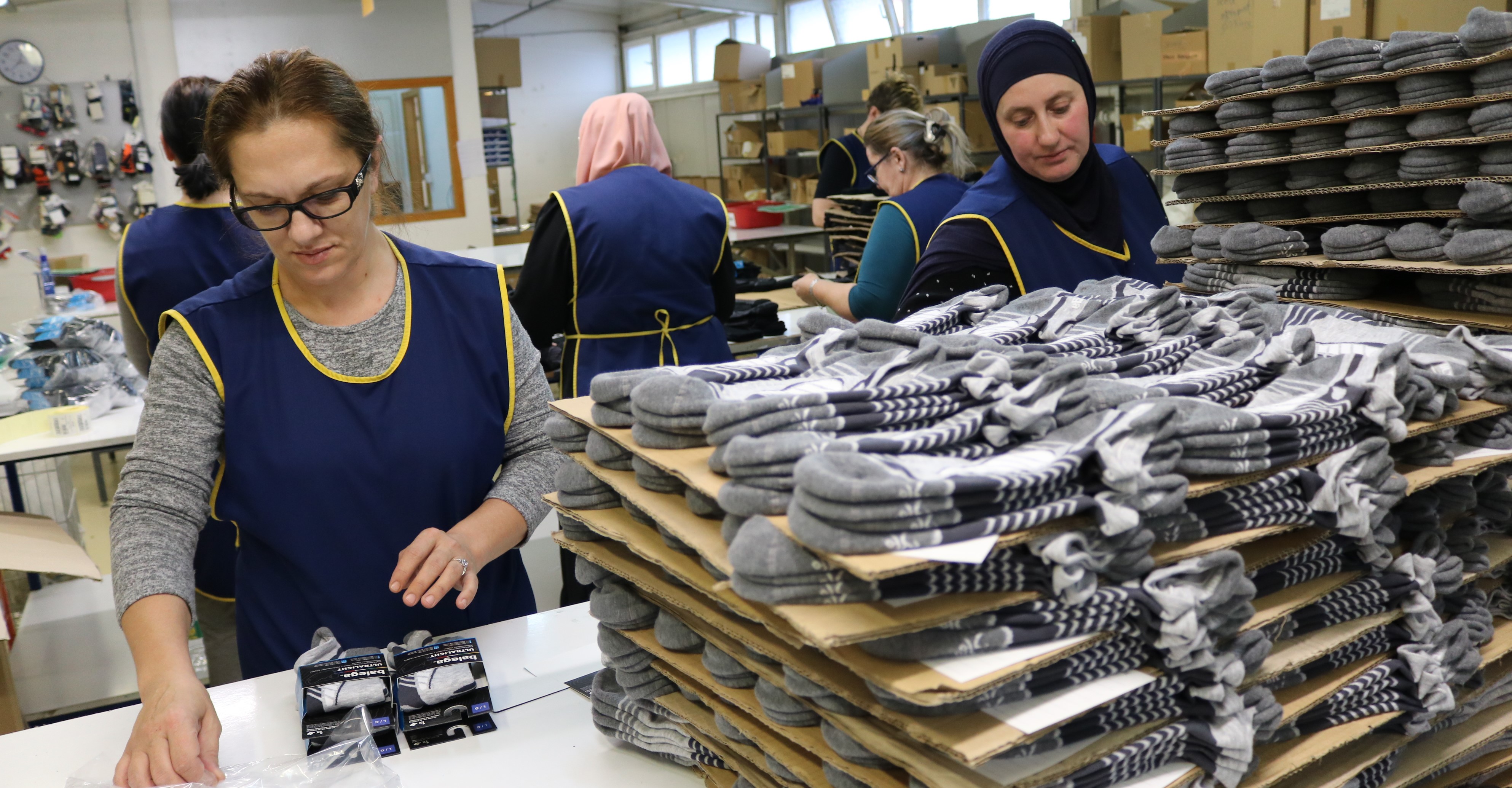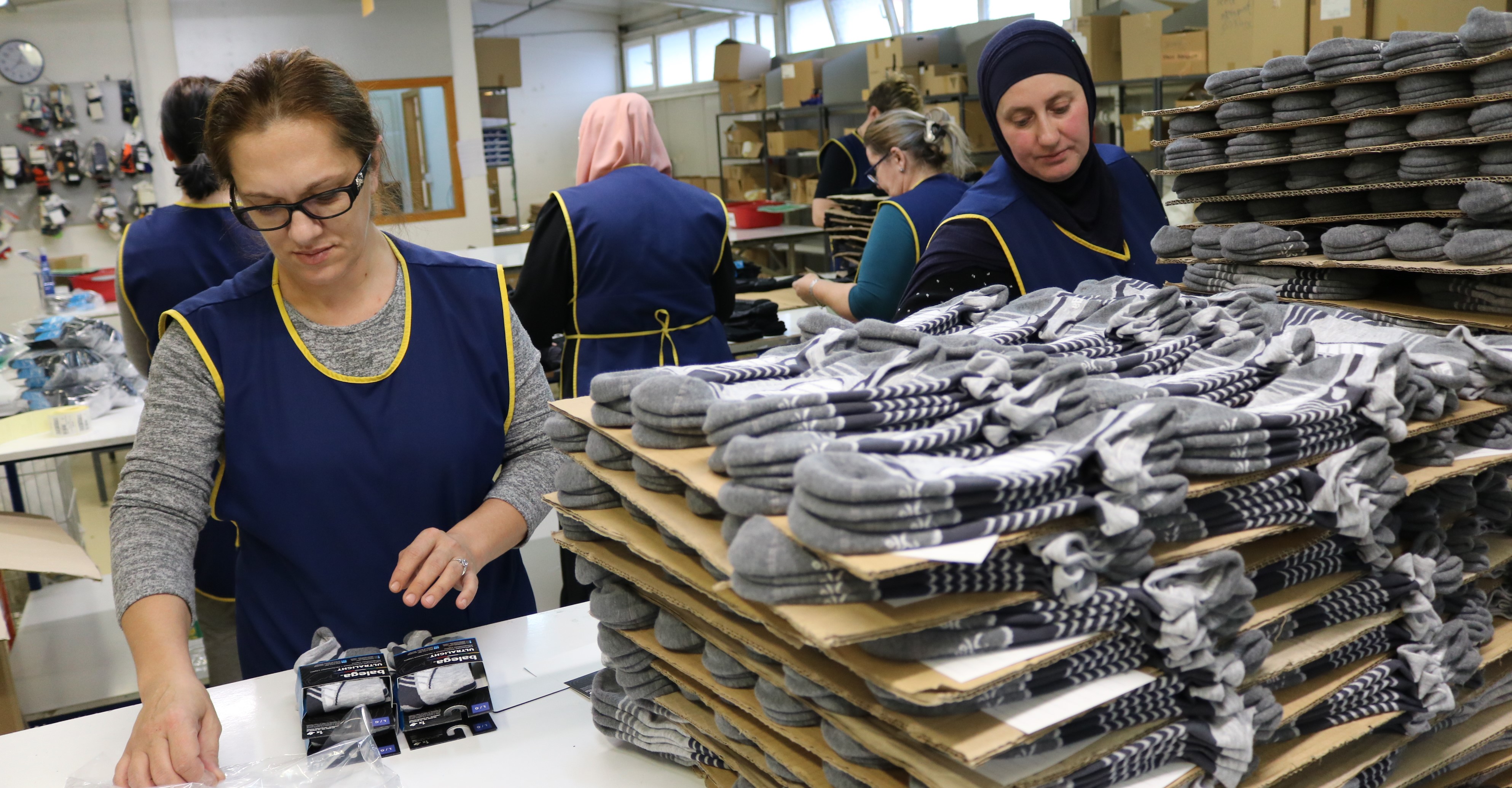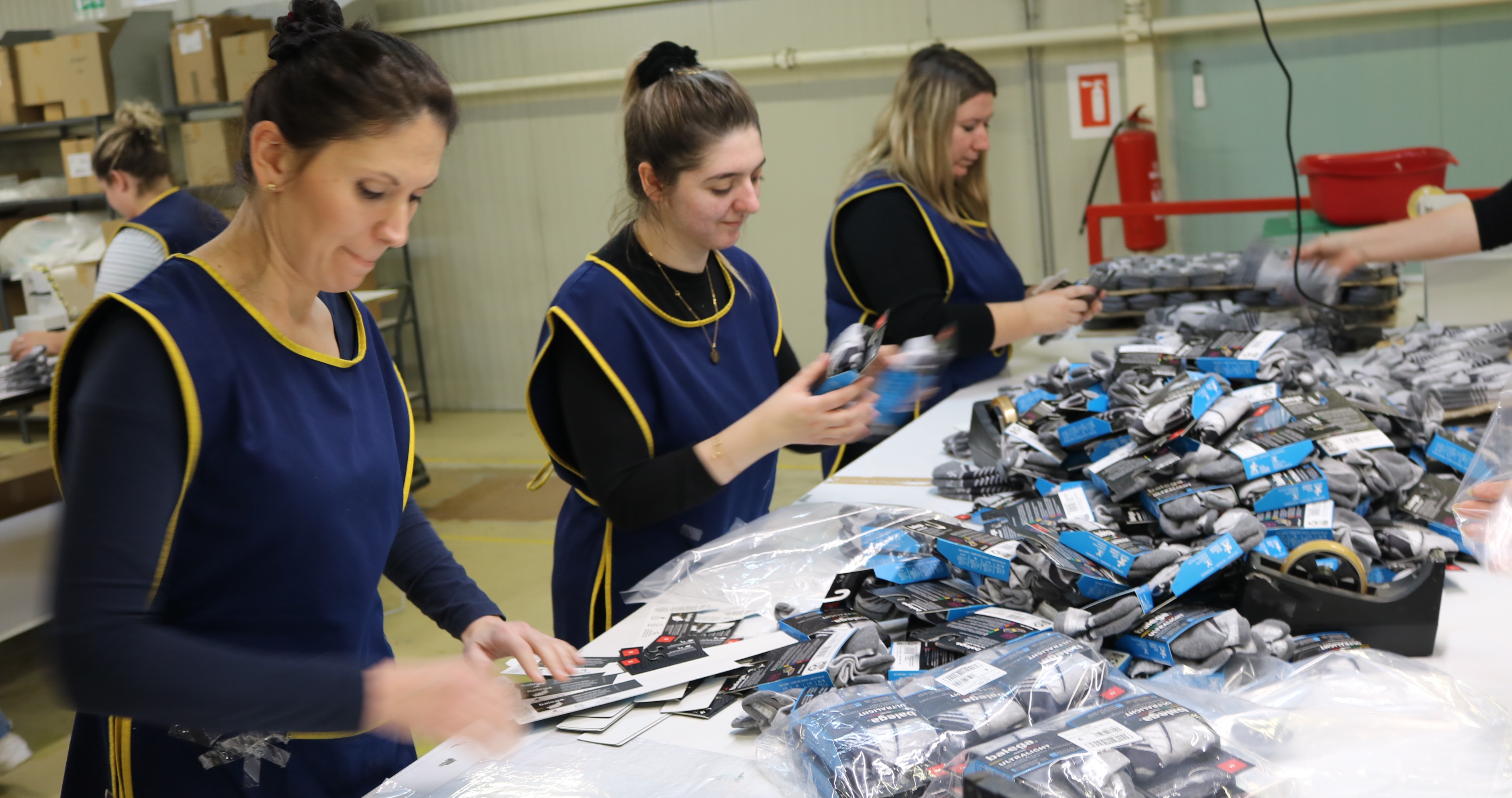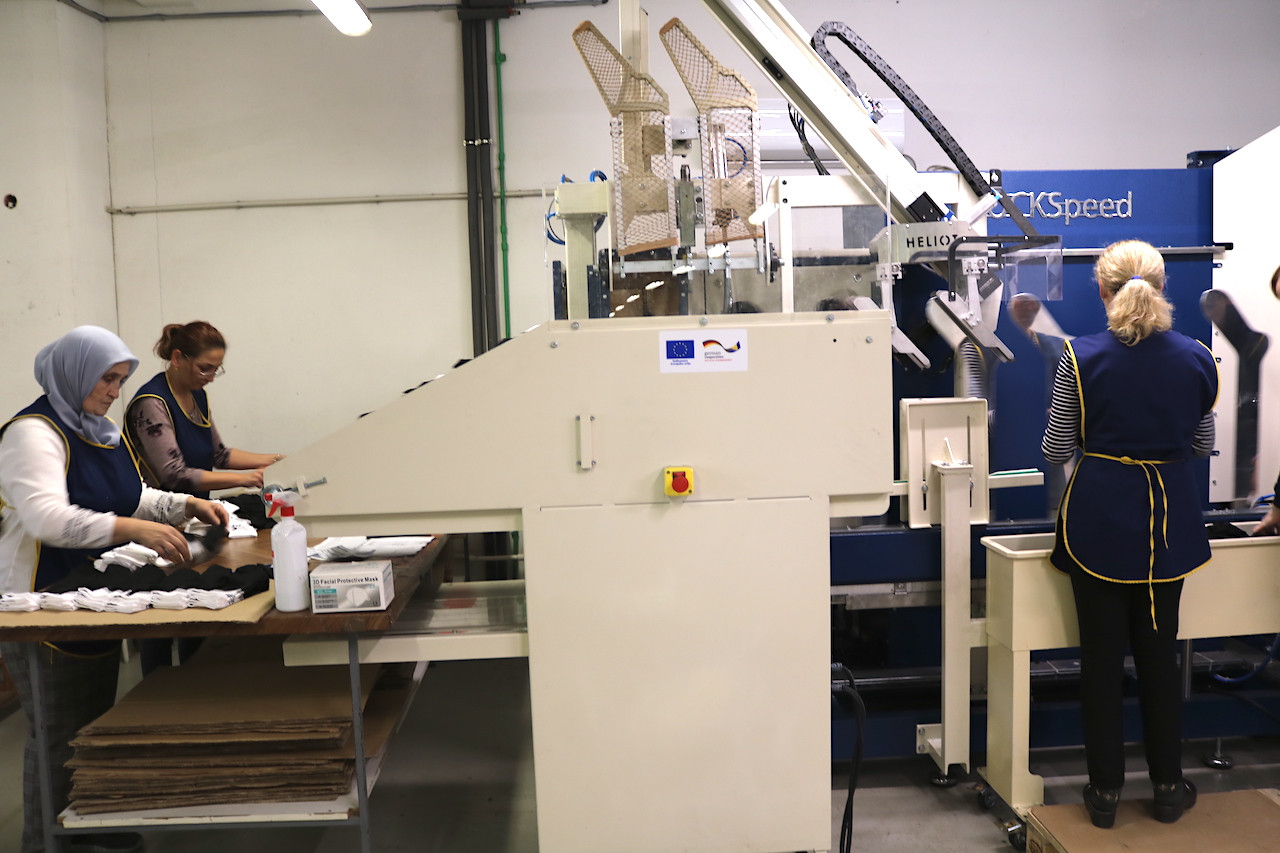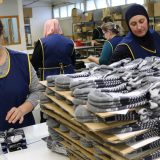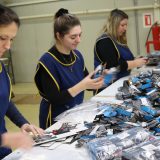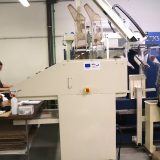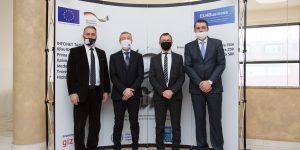“In Europe, they use different socks for different seasons and they all have an expiration date,” with these words we were welcomed at Conita d.o.o., an Ltd. from Tešanj, one of the textile, clothing, footwear and leather enterprises supported by the project EU4BusinessRecovery, co-funded by the European Union and the Republic of Germany.
The firm from Tešanj is working for foreign clients for over twenty years and their entire production and assortment of socks are intended for export. Lately, they have been trying to expand their offer to also include other clothing but, for the time being, are proud to produce as many as 30,000 pairs of socks a day.
“When first established, we worked for only one Italian client but, since then, have added another client also from Italy, a leading European clothing manufacturer. The support offered through EU4BusinessRecovery was especially important to Conita because during the pandemic, for the first time since our beginnings, we suffered financial losses. Specifically, the company did not generate any revenue for an entire year but kept paying wages to keep our employees. Unlike many of the firms in our industry that were forced to close over the period, we managed to ‘get back on our feet’ and, thanks to the assistance provided by the European Union and International Labour Organisation in BiH, even improve our business process and stabilise our production,” says Nešad Škapurević, company owner and Manager.
EU4BusinessRecovery provided Conita from Tešanj with an integrated assistance which includes a grant, technical assistance through counselling and investments, specialised support for the implementation of occupational health and safety measures, and assistance in the development of the company’s business improvement plan based on ILO methodology.
Mr Škapurević proudly notes: „We are especially grateful because the Project assistance allowed us to procure a socks ironing machine, which helped expedite the work process, reassign two workers to other jobs, and make savings. The machine was instrumental also to the introduction of a new work schedule. We are no longer in need of night shifts that were particularly hard on our workers, so this will improve their work conditions and significantly advance the business process in Conita. Furthermore, we are trying to stop working Saturdays so that our employees can have more free time”.
The Manager also added that Conita decided to invest in another machine to further improve the business process in the „sock kingdom”. Despite constant staff migration abroad and an insufficient number of trained and qualified textile workers entering the labor market each year, they emphasize that, with EU and ILO assistance, the company increased the number of employees from 81 to 106 and plans to increase their capacities even further this year.
“Purchasing new machines enabled the company to meet the needs of a new client, who wishes to collaborate with us on both the introduction of new sock designs and the expansion of our daily production to 50,000 pairs of socks. Given the client’s demand and needs, we decided to invest around one million Euros in 2023 to build a 3000 m2 production plant that would allow us to increase our production while also providing better working conditions for our employees. By securing new manufacturing and storing space and the equipment such as an industrial steam boiler, compressors and irons, we would increase the present annual production of around 6.5 million to 10 million pairs of socks a year. Hopefully, construction work will begin in March or April, and we will be able to move into the new building by the end of the year,” says Mr Škapurević.
In addition to producing 50,000 pairs of socks a day, Conita also plans to use the roof of their future building to house a 450 MWh solar power plant. The plant is designed to produce approximately 320 MWh of energy per year, which will meet the company’s needs as well as the needs of its clients, who are eager to transition to renewable energy sources.
As part of support through EU4BusinessRecovery, the Tešanj company committed to adopt and implement the ILO programme Sustaining Competitive and Responsible Enterprises (SCORE) in its production process. They find the SCORE methodology to be very useful and underline that Conita has already started implementing the business improvement plan meant to increase their capacities and improve their business model.
Finally, because 70% of their production is manual, the company wants to keep their current employees and even create new jobs in the coming year. They claim that workers are their primary focus and that no robot can replace the capacities they require.
EU4BusinessRecovery provides support to micro, small and medium-sized enterprises in Bosnia and Herzegovina to ensure their business continuity and job retention, with emphasis on assisting women, youth and other vulnerable groups with start-up development and overcoming negative impact of the Covid-19 pandemic, thus creating a more resilient business environment. The Project is worth EUR 13.7 million and it is co-funded by the European Union (EUR 13 million) and by the Government of Federal Republic of Germany (EUR 0.7 million). For more information, visit www.eu4business.ba.

